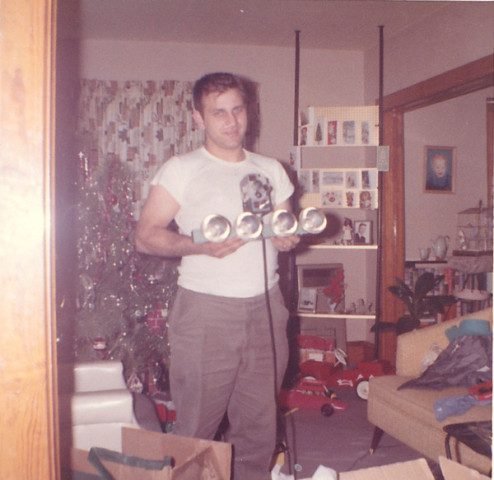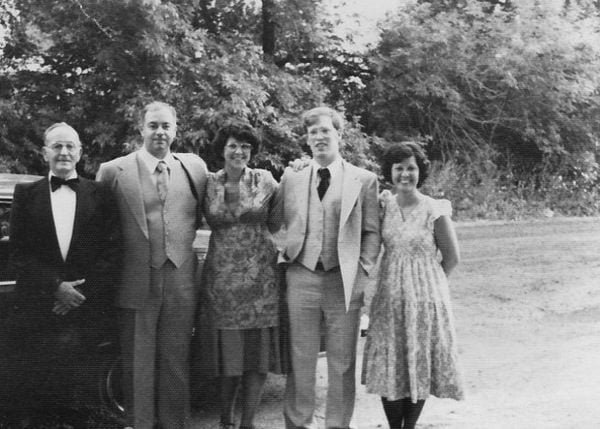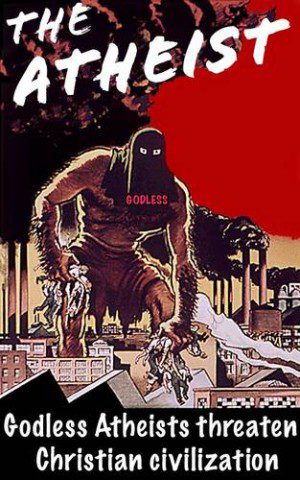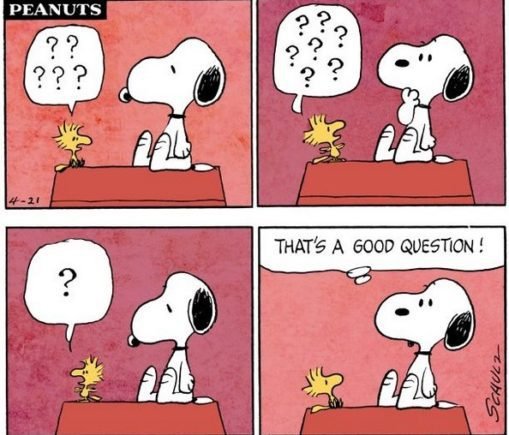
Christmas has played a part in my life ever since I entered the world in June of 1957. In this post, I want to detail some of my memories of Christmas.
As a child, Christmas at the Gerencser home was a typical American Christmas. Family, food, and gifts. While there were never many gifts, my siblings and I always received several presents from our parents. My Dad filmed many Christmases with his 8mm movie camera. Sadly, after Dad died in 1985, the movies were either lost or destroyed.
In the 1960s Christmas at our home changed, and not for the best. My grandfather on my mom’s side remarried. My grandmother remarried several times, but was divorced by the late 1960s. My grandparents on my Dad’s side died in 1963. Grandpa Gerencser died February 1, 1963 and Grandma Gerencser died a month later on March 5. I was left with Grandpa and Grandma Tieken and Grandma Rausch for Christmas, and they didn’t get along.

In the 1940s, Grandpa Tieken and Grandma Rausch went through an acrimonious divorce — a divorce that resulted in neither parent being deemed fit to raise their children. They had two children, my mother Barbara, and her brother Steve. Their hateful acrimony was on full display in the 1960s when Bob and Barbara Gerencser gathered for Christmas with their three children — Butch (that’s me), Bobby, and Robin. Into our family gathering would come the grandparents, teeth bared, hateful towards each other — likely fueled by alcohol. The fighting got so bad that it became necessary for us to have two Christmas gatherings, one for each grandparent.
In the summer of 1970, we moved from Deshler, Ohio to Findlay, Ohio. In the spring of 1972, my parents divorced. Dad would marry a 19-year-old girl a few months later, and Mom would marry her first cousin — a recent Texas prison parolee. From this point forward until I entered college, I have no recollections of Christmas. I am sure we celebrated Christmas. I am sure we had a tree, perhaps gave gifts, etc., but I have no recollection of it.
In the fall of 1976, I left Bryan, Ohio, and moved to Pontiac, Michigan to enroll at Midwestern Baptist College, a Fundamentalist Christian college noted for training men for the ministry. In September of 1976, I began dating a beautiful 17-year-old freshman girl named Polly. She would be the last girl I dated, and two years later, in July of 1978, we married.
My first Christmas with Polly was in 1976. I drove from Bryan, Ohio, to Polly’s parent’s home in Newark, Ohio. Polly’s Dad, the late Lee Shope , was the assistant pastor at the Newark Baptist Temple, an IFB church pastored by her uncle Jim Dennis. The Shope/Robinson/Dennis family Christmas was a multifamily affair, with two sisters joining together to have the celebration. Christmas of 1976 was held at the home of Jim and Linda Dennis.
Being Polly’s boyfriend, I was a topic of discussion and inspection. Needless to say, I failed the inspection. I vividly remember Polly’s uncle letting the whole church know that I was there visiting Polly. He said, “Bruce and Polly have a shirttail relationship. We just don’t know how long the shirttail is.” While I have no doubt Jim was trying to be funny, Polly and I were thoroughly embarrassed. This coming year we will celebrate 45 years of marriage –so the shirttail has proven to be quite long and resilient.
As I entered the Dennis home, I was taken aback by how many gifts there were. Underneath the tree and flowing out from its trunk were countless gifts, more gifts than my siblings and I received our entire childhood. The number of gifts– what I would later label an “orgy to consumerism” — continued unabated for many Christmases.
Polly’s family was littered with Fundamentalist preachers — her dad, uncle, and grandfather, along with cousins who later became preachers or married one. They made sure they put a good word in for Jesus before the gift opening commenced. Every Christmas, one of the preachers, which later included Polly’s cousins and nephew, gave a short devotional reminding everyone that the birth of Jesus was the real meaning of Christmas. Interestingly, even though I was an Evangelical pastor for 25 years, I was never asked to give the devotional. Make of that what you will.
After Polly and I married in 1978, we began to develop our own Christmas traditions. We spent Christmas Eve with Polly’s parents and Christmas Day with either my family in Bryan, Ohio, or with my Mom at her home in Rochester, Indiana, and later Columbus, Ohio. Polly’s family Christmas continued to be marked by the gift-giving orgy and lots of great food. Christmas with my Mom and family was a much more measured affair. Mom made sure her grandkids got several gifts, as did my grandparents and Aunt Marijene. Christmas at Mom’s house continued until around 1990 when she and her husband Michael moved to Michigan. The move was sudden and unexpected, and I came to understand later that they likely moved due to Michael’s shady business dealings with people who threatened to kill him. Mom would commit suicide in April 1992, while living near my sister in Quincy, Michigan. Please see Barbara.)
Christmas 1983. Polly and I decided to have Christmas with my extended family at our home in Glenford, Ohio. I only remember two things from this Christmas: Grandpa and Grandma Tieken being their usual judgmental, pushy selves and Mom being upset with me because I made her go outside to smoke. This would be the first and last time my extended family came to our home. For the next decade, not one member of my extended family came to our home, save several visits by the Tiekens — whose visits were excruciatingly unpleasant and psychologically harmful. (Please see Dear Ann and John.)
Over time, I drifted away from my extended family. I began to see them as outsiders — people in need of salvation. I regret distancing myself from my family, but as with everything in the past, there are no do-overs. We continued going to my Mom’s for Christmas until she moved to Michigan. We continued going to Polly’s parents’ home for Christmas until circumstances forced us to stop going. I will detail those circumstances in a moment.
In the late 1980s, I came to the conclusion that Christmas was a pagan holiday, a holiday that no sold-out, on-fire Christian should ever celebrate. I unilaterally gave away all our Christmas decorations and we stopped giving our children gifts for Christmas. It’s not that we didn’t buy our children anything, we did. Our children, to this day, will joke that Christmas for them came when the income tax refund check showed up. Living in poverty with six children resulted in us, thanks to the Earned Income Tax Credit, receiving a large income tax refund. When the check arrived — an annual large infusion of cash into our bank account — we bought our children everything they needed — with “needed” being the operative word. While we bought our children clothes, shoes, underwear, and the like, we bought them very few toys. We left it to grandparents to buy those. We did make sure they had bicycles, BB guns, and firearms, but very few toys. Living as we did, 8 people in a 720-square-foot, battered, old trailer, required our children to spend a significant amount of time outside. Toys became whatever the kids picked up in the yard or woods. I have often wondered, looking at the wealth of toys our grandchildren have, if our children are not compensating for their childhood. I know, as we buy for our grandchildren, that we are.
During my “Christmas is a Pagan Holiday” years, I routinely disparaged the gift orgy that went on at Polly’s parent’s home. At the time, I thought the money being spent on gifts could be better spent on evangelizing the lost. While I would later move away from the view that Christmas is a pagan holiday, I never lost the belief that many Christians are quite hypocritical when it comes to Christmas. Jesus is the Reason for the Season and Wise Men Still Seek Him, devout Christians tell us, but their orgiastic celebration of the true meaning of Christmas — consumerism — betrays what they really believe. After all, conduct reveals what we truly believe, right?
Over time, I allowed — remember, we were patriarchal in family structure — Polly to resume a low-key celebration of Christmas in our home. We had to buy new decorations because I gave all away our old antique decorations given to us by our mothers. For a time, we had an artificial Christmas tree. Since we moved back to rural Northwest Ohio in 2005, we have bought our tree each Christmas from the Lion’s Club in Bryan.
With my parents being dead, we spent Christmas Eve and Christmas Day with Polly’s parents. This abruptly changed in 2010. I left the ministry in 2003 and we abandoned Christianity in November 2008. In early 2009, I sent out my family-shattering letter, Dear Family Friends, and Former Parishioners. This letter fundamentally changed our relationship with Polly’s IFB family.
Christmas of 2009 was best remembered by a huge elephant in the middle of the room; that elephant being Polly and me and the letter I sent the family. No one said anything, but the tension was quite noticeable.
2010 found us, just like every year since 1978, at Polly’s parent’s home for Christmas Eve. This would be the last Christmas we would spend with Polly’s parents and her extended family. We decided to blend into the background, and besides short pleasantries, no one talked to us. Not that they didn’t want to. We found out later from one of our children that Polly’s uncle wanted to confront me about our defection from Christianity. Polly Mom’s put a kibosh on that, telling her brother-in-law that she had already lost one daughter and she was not going to lose another (Polly’s sister was killed in a motorcycle accident in 2005. Please see If One Soul Gets Saved It’s Worth It All.)
I appreciate Polly’s mom being willing to stand up to the man who is generally viewed as the spiritual head of the family (and a bully). I am glad she put family first. If Polly’s uncle had confronted me there surely would have been an ugly fight. Whatever our differences may be, I deeply respect Polly’s parents. They are kind, loving people, and I couldn’t ask for better in-laws.
Christmas of 2010 was two years after President Obama was elected to his first term. Polly’s family didn’t vote for him, and throughout the night they made known their hatred for the man, Democrats and liberals in general. Polly and I, along with many of our children, voted for Obama, so the anti-Obama talk and the subtle racism behind it made for an uncomfortable evening.
Most years, a gag gift is given to someone. This particular year, the gag gift, given to Polly’s uncle, was an Obama commemorative plate one of our nephews had bought on the cheap at Big Lots. One of Polly’s uncle’s grandchildren asked him what the plate was for. He replied, “to go poo-poo on” — poo-poo being the Fundamentalist word for shit. This was the last straw for us. (Please see The Family Patriarch is Dead: My Life with James Dennis.)
On our way home the next day, I told Polly that I couldn’t do it anymore and she said neither could she. We decided to stop going to Polly’s parent’s home for Christmas Eve. We do try to see her parents during the holiday season, but we no longer attend the family gathering on Christmas Eve. Making this decision saddened us, but we knew we had to make it. (By the way, our children still attend the Christmas Eve gathering.)
We moved back to Northwest Ohio in July of 2005. Since then, our family has gathered for Christmas at our home on the Sunday before Christmas. Doing this allows our children to avoid conflicts with their spouses’ family plans for Christmas.
These days, Christmas for Polly and me is all about family, especially the grand kids. For us, Christmas has become a celebration of love, a celebration of the gift of a wonderful family. While we do not believe in the Christian God, we still enjoy Christmas music and all the other trappings of the Christmas season. It’s a cultural thing — no need to complicate things with religious demands and obligations. When twenty-three people pile into our grossly undersized living room to open presents, we are reminded of how good we have it.
This Christmas, thanks to a raging pandemic, our children and grandchildren will not be at our home celebrating with us. We have all our shopping done, and we plan on Christmas Eve to deliver our grandchildren’s gifts to their homes. Well, their driveways, anyway. It’s hard not to feel lonely this holiday season, but I hope by next Christmas COVID-19 will be behind us.
How about you? How has the way you celebrate Christmas changed over the years? If you are now a non-Christian, how do you handle your Christian family? Please leave your experiences in the comment section.
Bruce Gerencser, 66, lives in rural Northwest Ohio with his wife of 45 years. He and his wife have six grown children and thirteen grandchildren. Bruce pastored Evangelical churches for twenty-five years in Ohio, Texas, and Michigan. Bruce left the ministry in 2005, and in 2008 he left Christianity. Bruce is now a humanist and an atheist.
Connect with me on social media:
Your comments are welcome and appreciated. All first-time comments are moderated. Please read the commenting rules before commenting.
You can email Bruce via the Contact Form.










